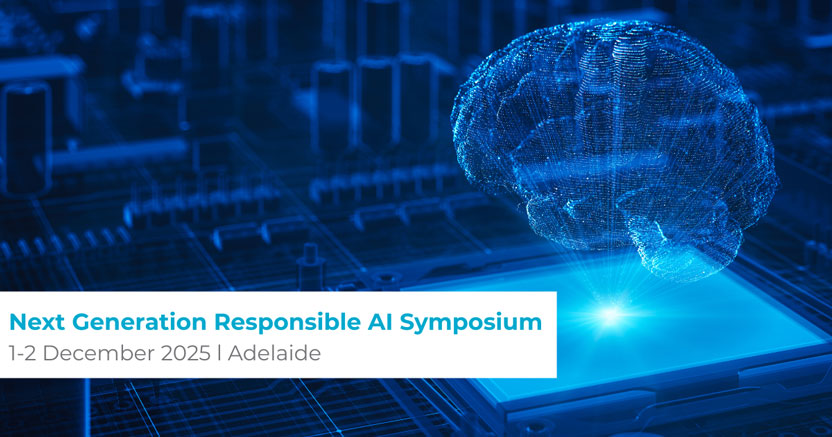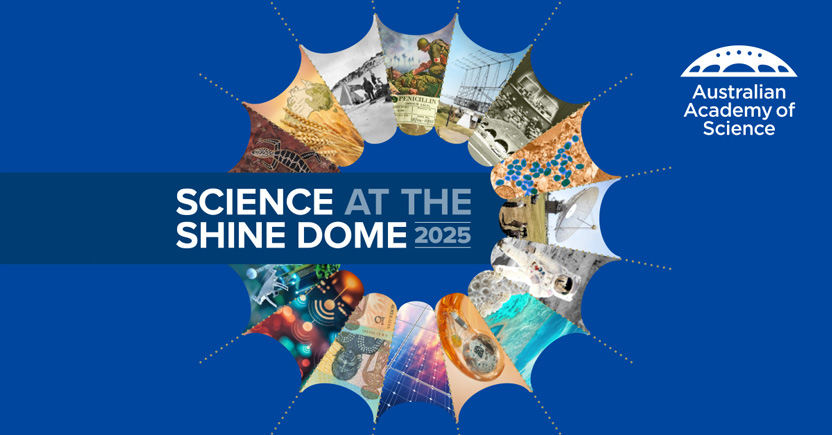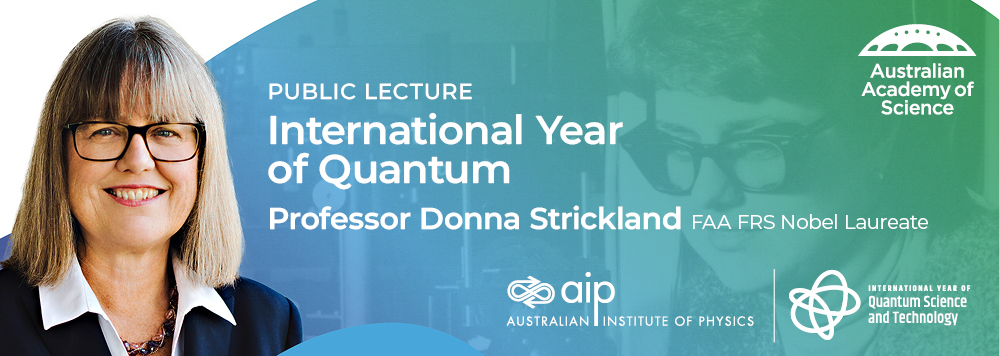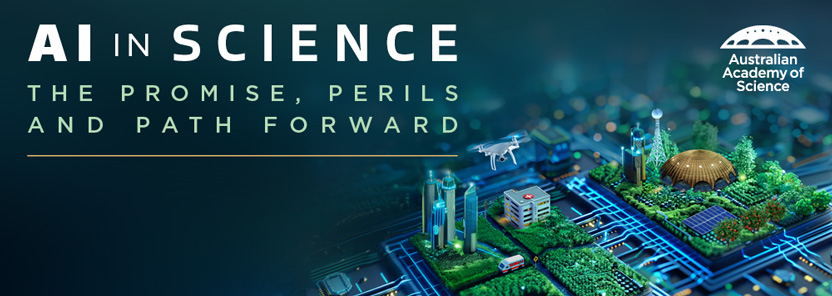
We are pleased to announce the publication of the 2024 Annual Report, covering the period 1 January to 31 December 2024.
In 2024, significant achievements for the Academy included successfully advocating for a redesign of Australia’s research and development system and playing a key role in establishing a learned academy in the Pacific so our regional neighbours have a collective scientific voice.
The Academy led with evidence to advocate for clean indoor air standards, coordinated climate change capability, and supercomputing capability to support researchers and industry.
We investigated the implications of AI on society and on science, and strengthened and deepened our work with Aboriginal and Torres Strait Islander peoples, including launching our Innovate reconciliation action plan.
Read the 2024 Annual Report (PDF 9.09 MB)
Earlier this year, Dr Charlie Morgan joined the Australian delegation at the Global Knowledge Dialogue and 3rd General Assembly of the International Science Council (ISC). The event, held in Oman, provided opportunities for hundreds of delegates to make progress on some of the most pressing global challenges of this century.
Dr Morgan is a Research Strategist in the Research School of Biology at the Australian National University, and a member of the Academy’s Early- and Mid-Career (EMCR) Forum Executive Committee.
Read his reflections from an EMCR perspective on the ISC event.

The Academy’s Theo Murphy Initiative (Australia) is funding the Next Generation Responsible AI Symposium from 1 to 2 December 2025.
The call for abstracts is now open.
Hosted by CSIRO and the Australian Institute for Machine Learning (AIML) at the University of Adelaide, the symposium will bring together Australia’s brightest EMCRs from various disciplines to promote cross-sectoral collaboration, drive thought leadership and spark tangible solutions for responsible AI.
EMCRs are invited to contribute on a wide range of topics, including fairness and bias mitigation, transparency, accountability, privacy and security, legal frameworks, bioethics, social science and human-centered approaches, and emerging cross-cutting issues.
Abstract submissions are open until 15 July. Fee waivers, grants and other funding opportunities are available to support participation in the symposium and follow-on activities.
The Academy recently made the following submission to government:
The International Geological Congress travel grant scheme is currently open for applications.
Funding is available to provide Australian and New Zealand geoscientists in the early stages of their careers with opportunities to travel internationally to further their careers as geoscientists by, for example, undertaking field work in appropriate areas, visiting and working with appropriate international experts, inspecting mines or other geoscientific features such as type localities, and contributing to geoscientific conferences or conventions.
Applications for the scheme close 30 September 2025.
Keep abreast of the Academy Fellowship in the Fellows update:
If Fellows have been recognised with an award, please let us know via fellowship@science.org.au so we can consider including it in the next update.

In our flagship event from 1 to 4 September, Australia’s science sector will gather at the Shine Dome in Canberra – the home of Australian science – to celebrate science and to honour outstanding achievements.
Fellows elected in 2025 will sign the historic Charter Book, adding their name to the scientific greats of our nation, and delegates will have a unique opportunity to learn about the depth and breadth of Australian science from the nation’s best. We will celebrate the recipients of the Academy’s prestigious awards and early- and mid-career researchers will have an unparalleled opportunity to network and forge new collaborations.
The National Symposium, which is part of Science at the Shine Dome, will explore the findings of Australian Science, Australia’s Future, the Academy’s examination of the capabilities Australia requires to meet our national ambitions.
Find out more about Science at the Shine Dome 2025.
As part of our Science at the Shine Dome event, winners of state and territory heats will compete at the 10th Falling Walls Lab Australia Finale. The jury of eminent judges at the finale will select the most innovative and promising ideas, with three finale winners chosen to represent Australia in Berlin. Join the finale audience in Canberra on 1 September, but book early as seats are limited and will fill quickly!

The Academy is delighted to welcome Professor Donna Strickland FAA FRS Nobel Laureate to the Shine Dome during her tour of Australia for the International Year of Quantum.
Professor Strickland will be formally admitted as a Corresponding Member of the Academy, followed by a public lecture about her remarkable work leading to her Nobel Prize in Physics in 2018.
Date: Thursday 10 July
Time: 5.30–7.00pm, followed by refreshments
Venue: Shine Dome Canberra, and online livestream
Cost: Free
Find out more about this exciting event.

Seed-planting farmbots, pest-detecting drones, and robotic noses for evaluating wine and beer: the future of food production and farming is high tech.
AI has the potential to boost the sustainability and efficiency of Australian agriculture. It can selectively control weeds, saving on herbicide use. It can figure out the perfect time to water a crop, and identify grapes damaged by bushfire smoke.
Join us to hear from two expert speakers at the cutting edge of this technology: Associate Professor Sigfredo Fuentes and Dr Sarah Hartman.
Come along and get a taste of the future of food.
Date: Tuesday 12 August 2025
Time: Canapes and drinks are served from 5.30pm, with the talks (and the livestream) at 6.00–7.00pm AEST
Venue: The Shine Dome, 15 Gordon Street, Acton ACT (and free online livestream)
Cost: $20pp ($15pp for students), livestream free
More about our 2025 public speaker series
Watch the recordings of our previous events:
The Australian Academy of Science has launched the Global Talent Attraction Program aimed at recruiting leading scientists from the United States. This institution- and discipline-agnostic initiative offers competitive relocation packages to attract exceptional talent that could be placed in universities, medical research institutes, research agencies, and industries while focusing on areas of national need. Embedding brilliant minds within Australia’s R&D system creates a powerful multiplier effect that seeds capability, creates jobs, attracts investment, mentors young scientists, and positions Australia as a global innovation leader.
With other countries already pursuing similar opportunities, the Academy is calling on visionary funders to contribute to this nation-building program and be part of Australia’s scientific and economic future.
To learn more about giving to the Academy visit our website or contact Kate Groves on (02) 6201 9460 or kate.groves@science.org.au.
The Honorary editor of the Academy newsletter is Professor Yuri Estrin FAA
© 2026 Australian Academy of Science